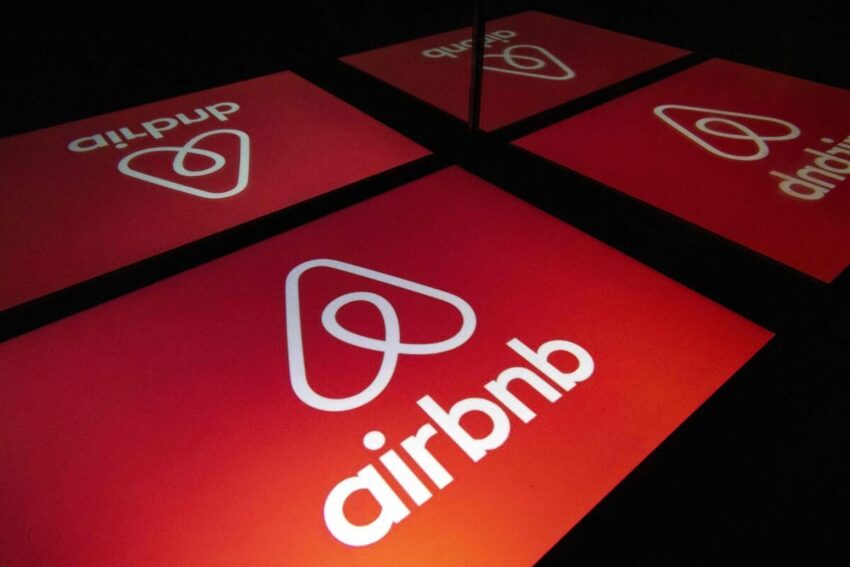Toronto could soon move to crack down on rule-breaking hosts with Airbnb and other platforms, in an effort to tighten control of the growing short-term rental market that critics charge is contributing to the housing crisis.
In a report headed to council’s housing committee next week, city licensing staff recommend launching annual property inspections, improving data-sharing practices to catch phoney registrations, and strengthening enforcement of the rule requiring hosts to live at the property they rent out, among a raft of other measures.
To help pay for stepped-up enforcement, staff proposes more than doubling the short-term rental program budget by hiking fees paid by hosts and booking websites.
Some of the problems the report seeks to address, like lax enforcement of the rule restricting hosts to renting out their primary residence, were highlighted in a Star investigation published in January.
The city’s executive director of licensing and standards Carleton Grant said that there’s a lot of money to be made in the “lucrative industry” of short-term rentals, which generated $215 million for Toronto hosts last year, and “people are always looking for opportunities to skirt the rules.”
The report’s objective is “to close all the loopholes,” he said. “We need to do what we can to (protect) the long term rental housing stock in our city.”
But Nathan Rotman, Airbnb’s Canada public policy lead, cautioned that the proposed changes will do little to address housing woes, “and instead will take money out of the pockets of people who rely on home sharing to keep up with rising inflation.”
The company says it’s cooperated with Toronto to enforce existing bylaws, but it’s particularly concerned about proposals in the report that would limit how many nights a year hosts can rent out single bedrooms in their homes, and remove operators’ right to appeal if their licence is revoked.
In a statement, Mayor Olivia Chow didn’t say whether she backed the recommendations, but stressed the city must “find the right balance” between allowing homeowners “the freedom to rent their principal homes short term” and “crack(ing) down on speculators and bad actors.”
The licensing framework the city imposed on short-term rentals in 2020 was intended to prevent the large-scale conversion of badly-needed rental stock into de facto hotel rooms. It allowed people to rent out their own homes for fewer than 28 consecutive days, and required them to register with the city.
According to the report, it has been partially successful. More than 84,000 unregistered or non-compliant listings were removed from online platforms since 2021, and a McGill University study determined the bylaw was likely responsible for between 3,300 and 5,100 units being returned to the housing market.
By the end of last year, there were about 8,100 active short-term rental registrations in Toronto, nearly twice the number in 2021, and just 19 full-time staff supporting the program. Since the start of 2021, the city has received more than 3,600 complaints about short-term rentals through 311.
The report cites breaches of the principal residence rule and the cap limiting units to being rented for a maximum of 180 nights a year as the most common problems undermining the current regime.
The Star investigation found some property owners have flouted the rules with seeming impunity, at times with the help of management companies that charge hosts to help evade regulations and rent out multiple properties.
Under existing rules, hosts are asked to submit a driver’s licence to prove their primary address. But the report notes that addresses on licences can easily be changed, and recommends requiring hosts to “upon request” submit at least two additional documents to confirm where they live.
The rule allowing hosts to rent out bedrooms in a property for an unlimited number of nights would be changed to match the 180-night maximum for entire units, and the process for revoking licences of operators who break the rules would be sped up by removing the current 30-day appeal period.
Instead of auditing rental properties only in response to complaints, the city would launch annual inspections, and give staff the authority to require program applicants to attend an in-person interview.
The report recommends increasing the program’s annual budget from $2.7 million to $5.5 million, and hiring 23 additional staff. Annual registration fees paid by hosts would be increased more than sevenfold, from $53 to $375, and nightly fees charged to rental companies like Airbnb and Booking.com would increase from $1.06 to $1.50.
If approved by council next month, the changes would be phased in starting June 30.

